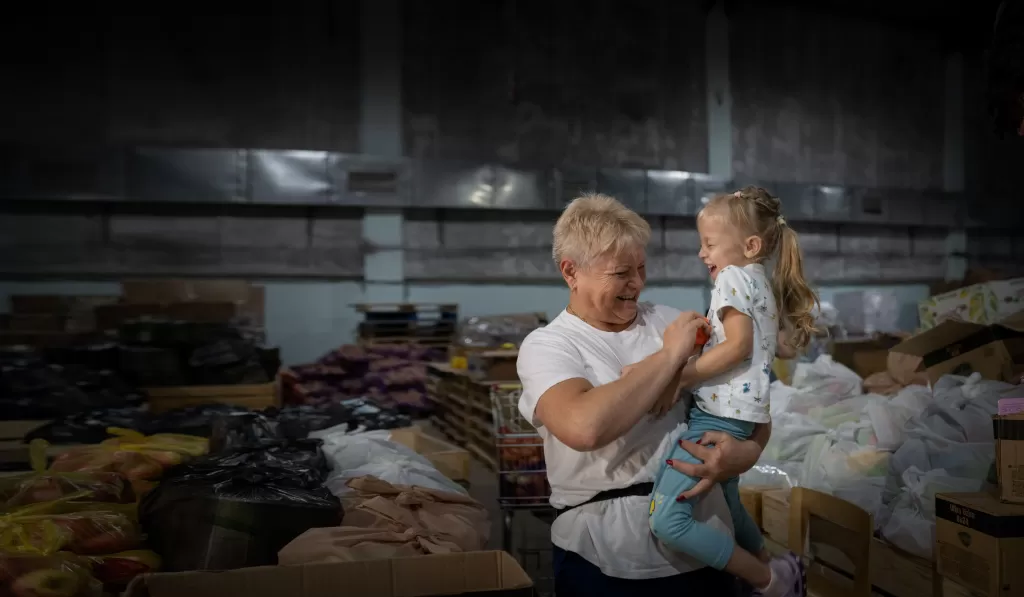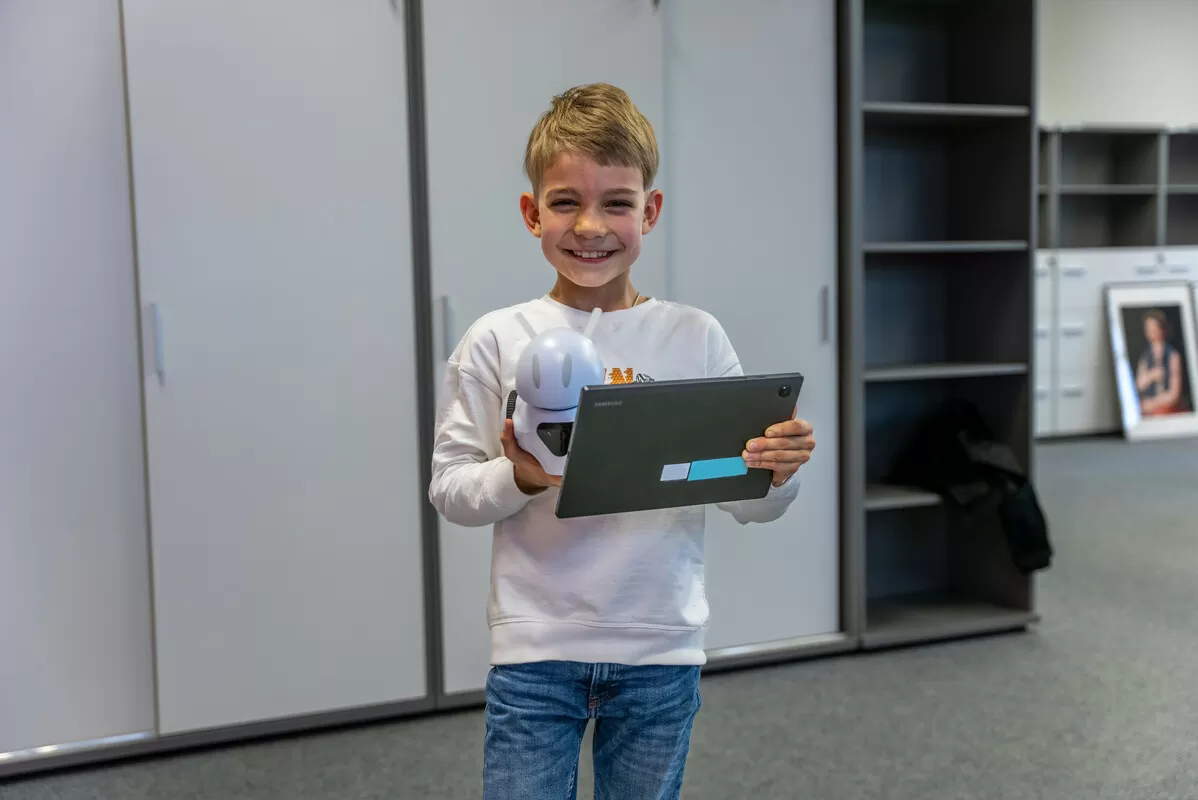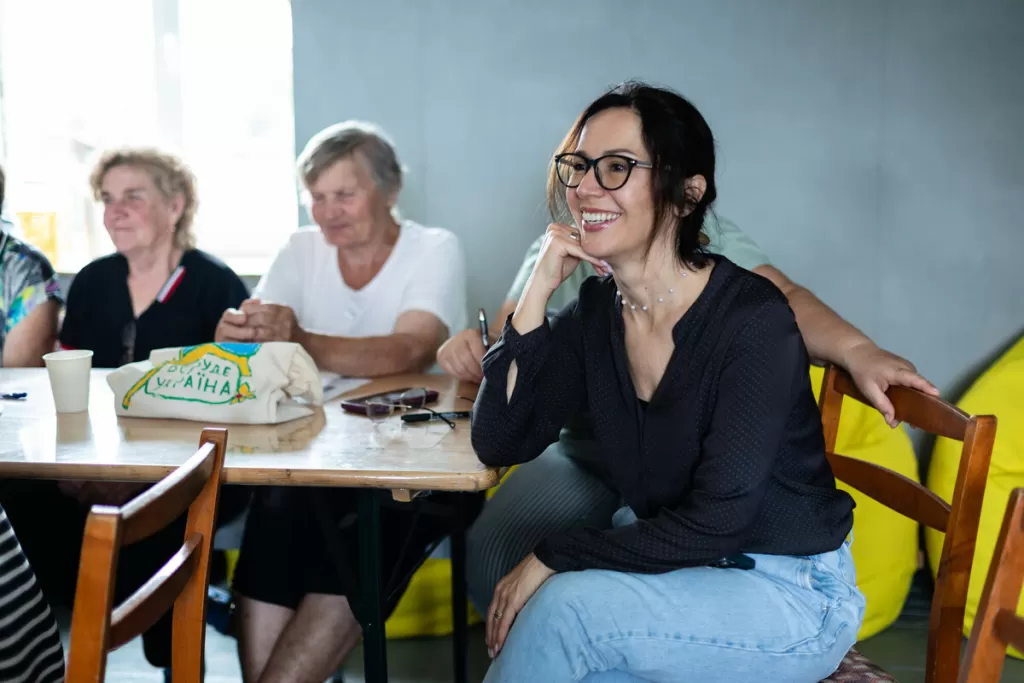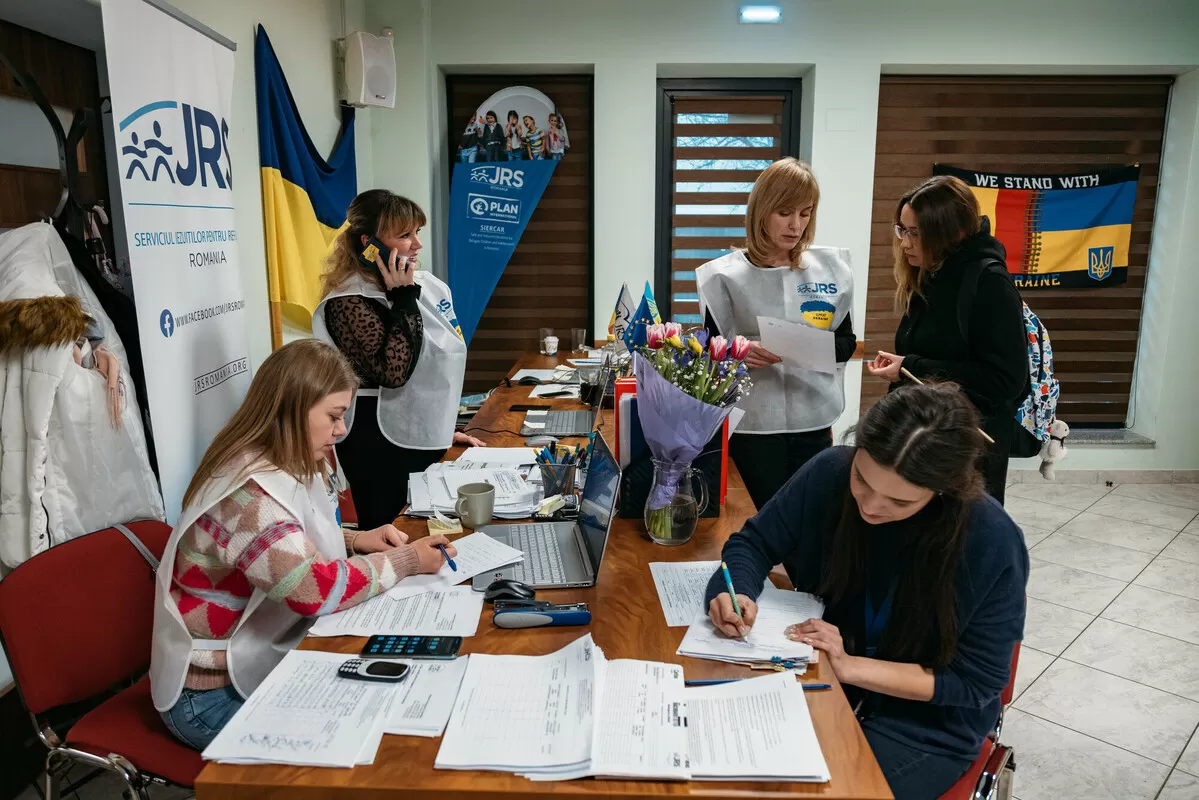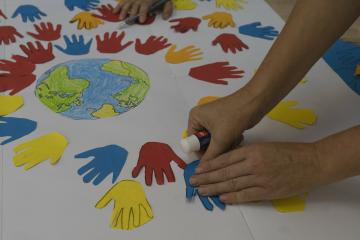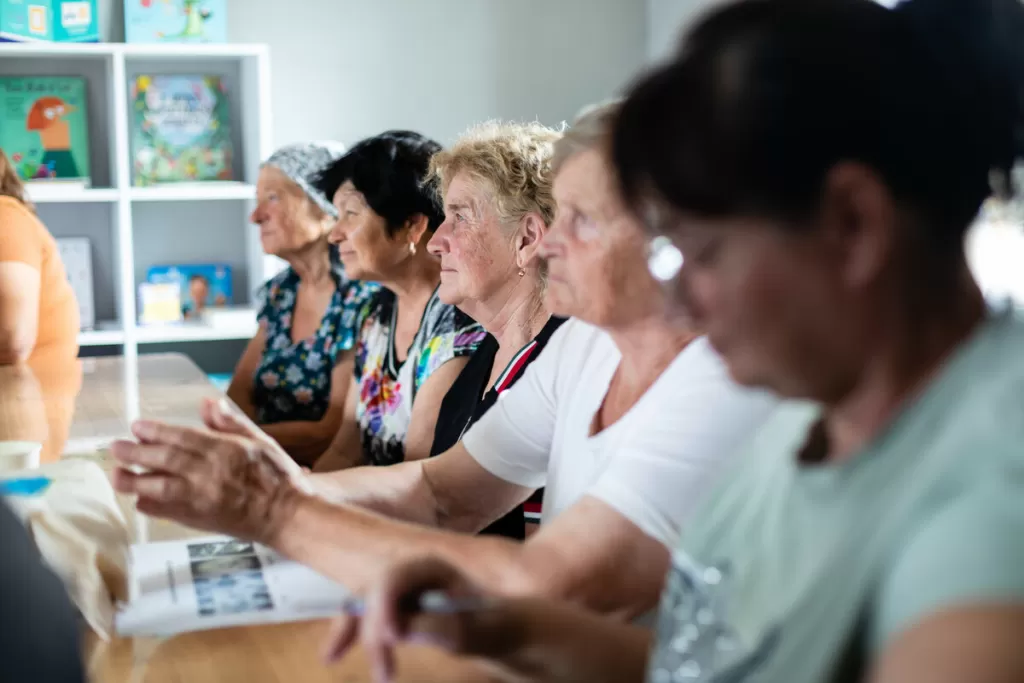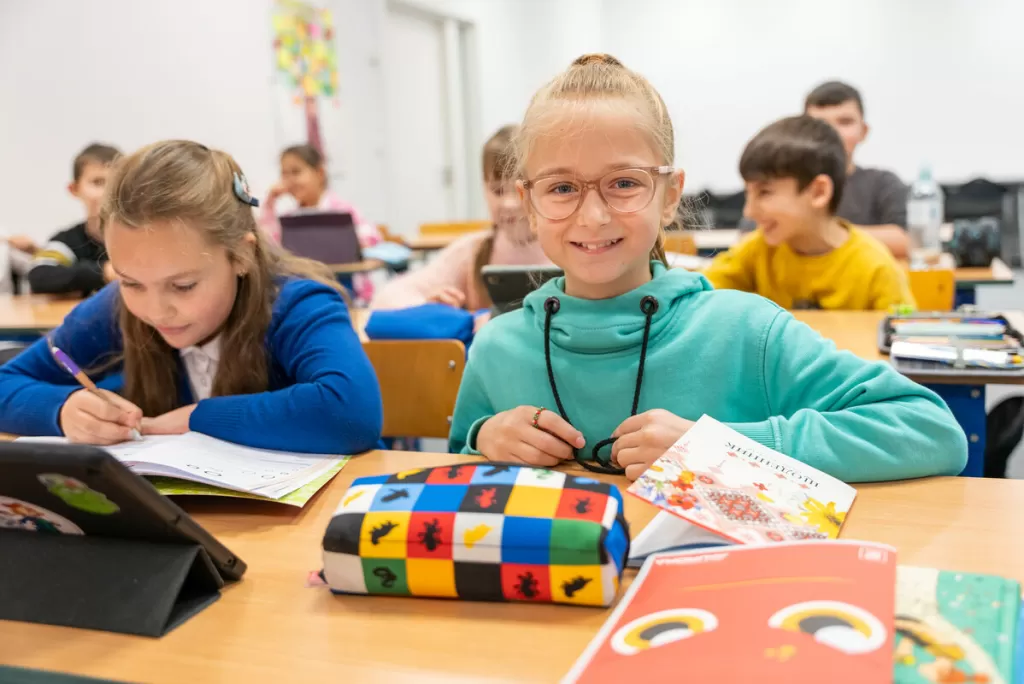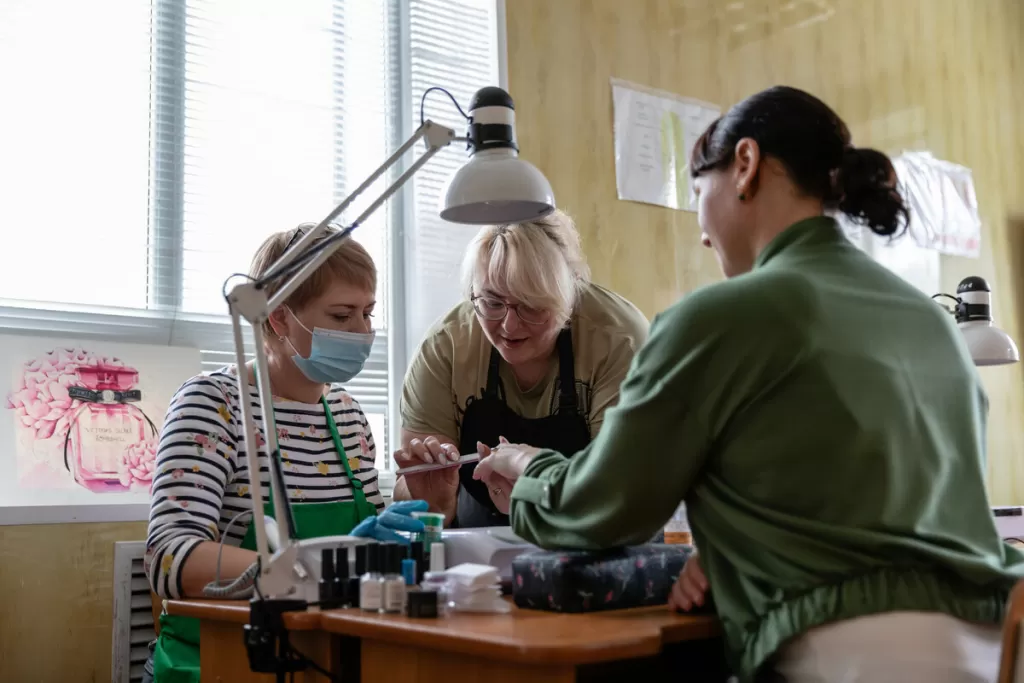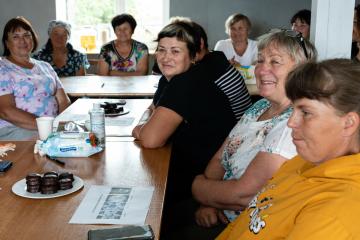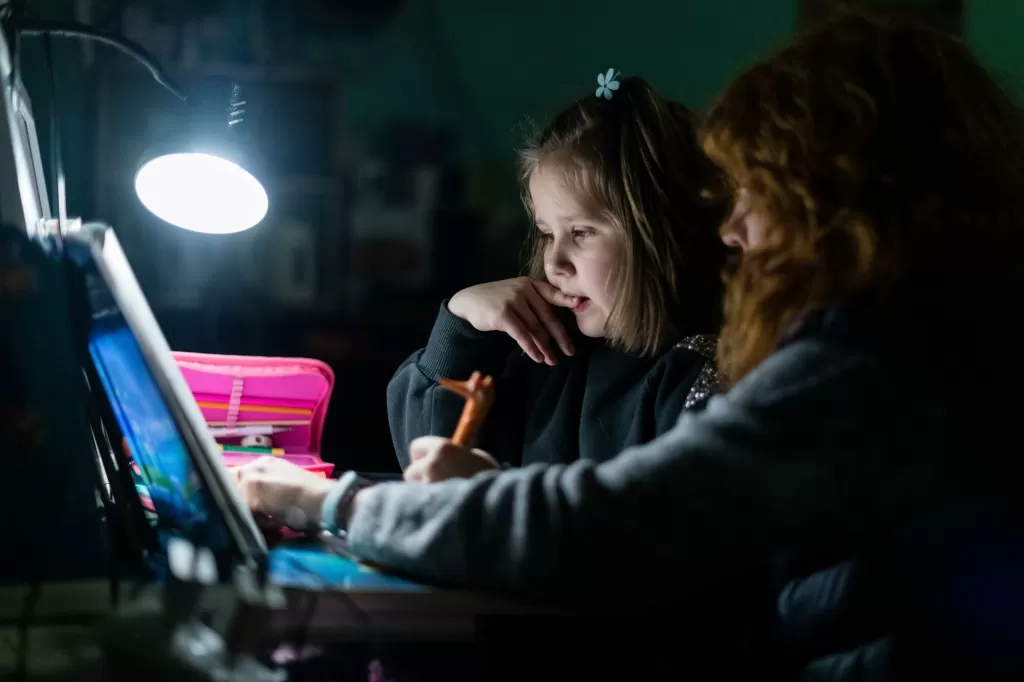Local Pooled Funds
Flexible Funding for Women’s Rights Organisations in Ukraine
Partners: Oxfam and Action Aid
The Women’s Humanitarian Leadership Fund (WHLF) provides flexible funding to Women’s Rights Organisations (WROs) in Ukraine. Through tailored grants and capacity-strengthening support, the initiative helps WROs respond to humanitarian needs while investing in their own sustainability, leadership, and resilience.
Since early 2025, Oxfam and ActionAid have supported 12 diverse WROs—including organisations working with Roma women, LGBTQIA+ communities, women with disabilities, survivors of violence, and rural women—through flexible funding and accompaniment. These WROs are using funds to cover core costs, strengthen internal systems, and advance community-led responses shaped by lived experience.
The WHLF is inspired by Oxfam’s Women’s Rights Fund (WRF), a feminist funding initiative developed in other contexts, which was recently recognised as the Overall Winner and Best International Aid & Development Programme at the 2025 UK Charity Awards. The judges described the WRF as “a radical shake-up” and highlighted its potential to catalyse sector-wide change by shifting power to grassroots women’s rights organisations. This external recognition affirms the relevance of feminist funding models and reinforces the decision to adapt the approach to Ukraine’s humanitarian context.
The initiative models a more equitable way of partnering: simplifying due diligence, reducing reporting burdens, and shifting decision-making power to local feminist actors. A tailored capacity-strengthening programme is also underway, co-designed with the Gender Bureau, focusing on leadership, MEAL, finance, safeguarding, and well-being.
“This is the first time we’ve been trusted to decide for ourselves. We can finally invest in our team, our systems, and our future, not just project outputs.” - Representative from I CAN, Kharkiv-based WRO
A joint learning agenda is embedded across the project, generating evidence on the value of flexible funding, feminist partnership models, and power-sharing in crisis settings. In a shrinking funding environment, WHLF is helping WROs not only survive, but lead.
Ukraine Local Pooled Fund Pilot with Tiered Due Diligence
Partners: Start Network (hosted by NNLPD)
Born out of DEC’s localisation scoping review and civil society advocacy, this pilot initiative set out to design and test a locally led pooled funding mechanism for Ukraine — one that enables small and emerging humanitarian organisations to access funds through a reduced and tiered due diligence system.
The fund was hosted by the National Network of Local Philanthropy Development (NNLPD) and co-designed with over 70 Ukrainian civil society actors. Applications were reviewed by a roster of national experts, with 100% of funding awarded directly to local NGOs for humanitarian responses such as hygiene support, mental health services, housing, and education for children.
The due diligence approach, adapted from the Start Network’s framework, avoided binary “pass/fail” models and instead offered organisational strengthening grants to partners who didn’t yet meet compliance thresholds. The process helped identify areas for growth, with some organisations using the opportunity to develop policies, risk strategies, or advocacy plans.
“It was the first time we were invited to shape not just our own project, but the fund itself. That kind of trust is rare.” Ukrainian civil society participant, co-design workshop
Although the pilot faced delays, it successfully demonstrated that local actors can design, manage, and deliver pooled funding, setting the groundwork for a Ukrainian-led model that challenges international norms in humanitarian financing.”
